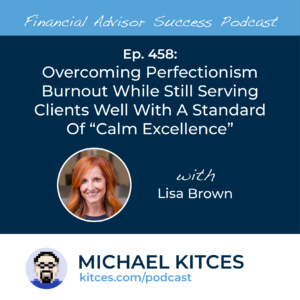Enjoy the current installment of "Weekend Reading For Financial Planners" – this week's edition kicks off with the news that a recent study by Osaic of advisors on its platform identifies four avatars of those who experienced the most growth, including "Rainmakers" who prioritize building relationships with prospective clients and centers of influence, "CEOs" who craft formal business plans and implement them through a team to increase capacity, "Financial Planners" who go deep into the planning process to add more value (and charge higher fees in the process), and "Private Wealth Specialists", who have the technical skills to serve distinct affluent client segments. Which reflects that while there is no single path to growth in the financial advice industry, recognizing advisor strengths that reflect these avatars and leaning into them could lead to a more focused growth strategy compared to attempting a more scattershot approach.
Also in industry news this week:
- State regulators are increasingly examining advisors' use of held-away asset management technology, with some highlighting the potential utility of these tools and others taking a much stricter line
- A CFP Board study finds that women CFP Professionals are, on the whole, very satisfied with their careers and identifies practices firms could consider to attract more women to their teams and into the industry as a whole
From there, we have several articles on mortgage planning:
- How financial advisors can offer value for clients by helping them evaluate opportunities to reduce their mortgage rate on a new home, from the tradeoffs involved when paying points to 'buy' a lower rate to temporary interest rate buydown opportunities
- Why observing 10-year Treasury rates (and not just the latest Federal Reserve interest rate decision) could be particularly instructive when assessing how mortgage rates might move in the coming months
- An analysis suggests that delaying a home purchase at a time when the Fed is expected to cut rates might not be as rewarding (in terms of getting a significantly lower mortgage rate) as many clients might expect
We also have a number of articles on advisory firm fees:
- A recent study finds that firms charging on a fee-for-service basis increased their fees over the last year, with many using both flat and assets under management-based fees in their practices
- How evaluating a firm's median client fee can signal whether it could face capacity constraints in the years ahead
- Why taking a value-based approach could be particularly effective (compared to a cost-centric message) when communicating a fee increase to clients
We wrap up with three final articles, all about avoiding scams:
- Six-figure losses amongst older victims of impersonation scams have risen dramatically over the past several years, offering an opportunity for advisors to inform clients of the warning signs that they might be targeted
- How advisors can play a role in helping clients avoid falling victim to ACATS scams, which can drain their brokerage and retirement accounts without their knowledge
- Two simple rules that can help busy professionals avoid becoming victims of increasingly sophisticated scams
Enjoy the 'light' reading!




